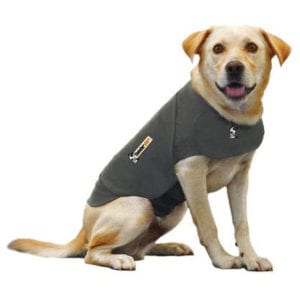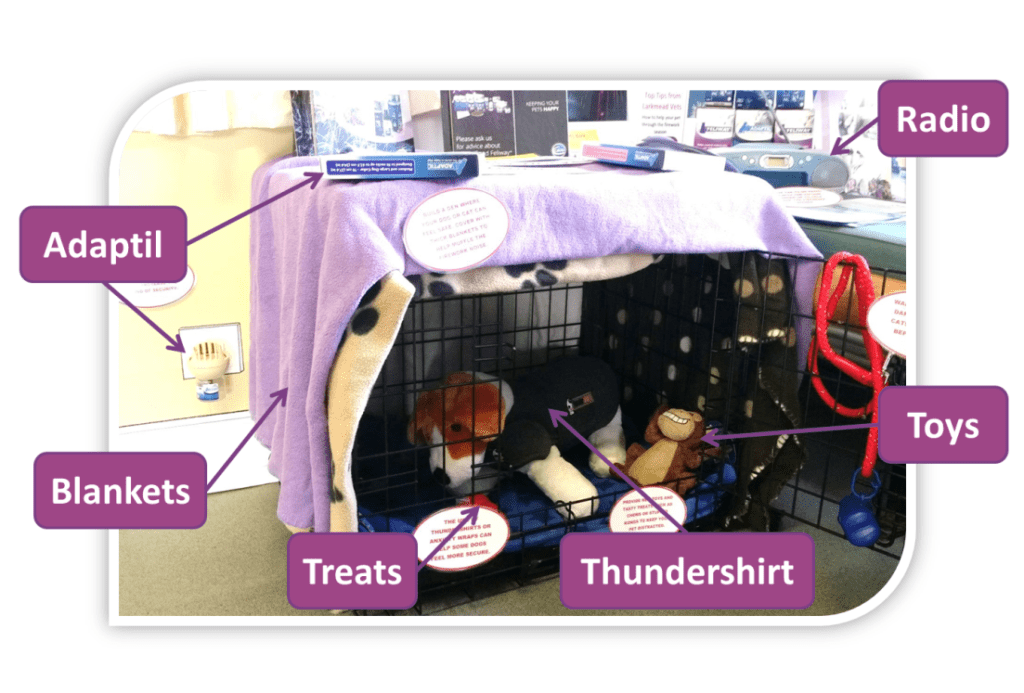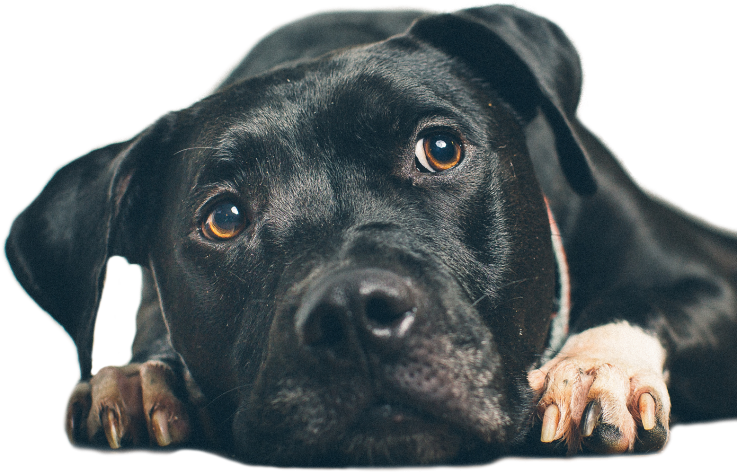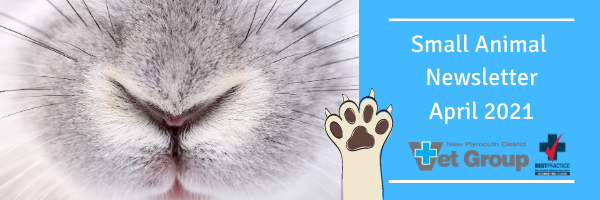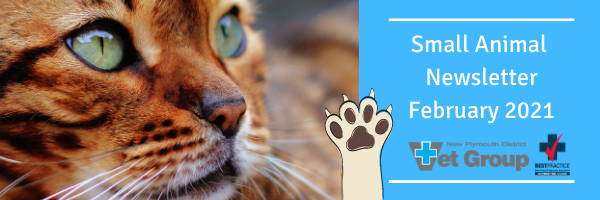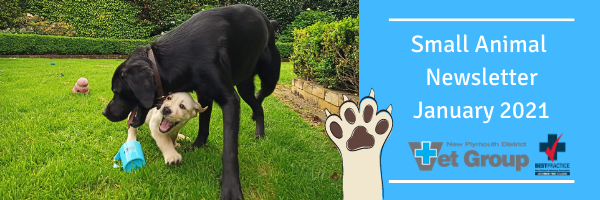We now offer Low Level Laser Therapy (LLLT also known as Photobiomodulation) Recently, we started offering…
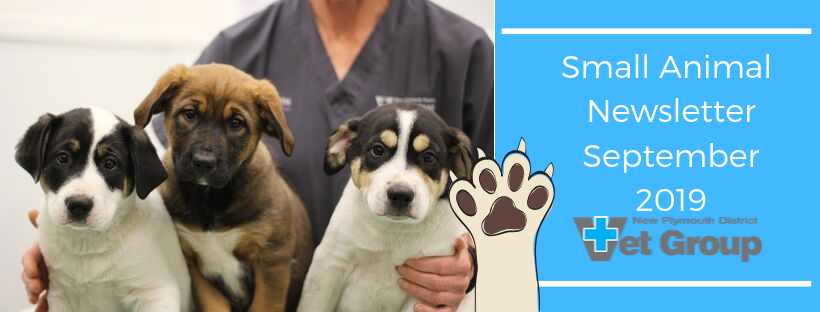
Small Animal Newsletter September 2019
Preparing for Guy Fawkes Season
 Guy Fawkes can be an exciting time for us, but for our pets it can be very stressful. It can cause them major distress and anxiety and in some cases, cause them to run away from home. The bright lights and loud noise aren’t something they are used to seeing and hearing every day and it can trigger stress-related behaviours such as hiding, pacing and barking.
Guy Fawkes can be an exciting time for us, but for our pets it can be very stressful. It can cause them major distress and anxiety and in some cases, cause them to run away from home. The bright lights and loud noise aren’t something they are used to seeing and hearing every day and it can trigger stress-related behaviours such as hiding, pacing and barking.
Prepare early with these helpful tips:
1. Check your pets’ microchip, collar and ID tag are up to date.
Every year many pets are reported missing. Ensuring your pet’s details are up to detail will help them get home if your pet does get scared and run from your property. If you have recently moved or your contact details have changed, make sure you have let us know and if your pet is registered with the New Zealand Companion Animal Register click here to check and update your details.
2. Get prepared
Guy Fawkes may be only a one day holiday, but fireworks can be let off at any time. Having products designed to help reduce anxiety on hand can help minimise your pet’s stress and anxiety. Here are some of the products we can recommend:
Nutrazyl tablets – you can purchase these over the counter.
Feliway Spray and diffuser for cats.
Adaptil Spray and diffuser for dogs.
Thundershirts – Applies gentle, constant pressure, similar to swaddling an infant.
Royal Canin Feline Calm 2kg & 4kg.
3. Feed your pets before the fireworks start.
When your pet has a full stomach, they are more inclined to be more relaxed and feel sleepy.
4. Toilet Stops
Make sure your dog has been out to the toilet before the fireworks start and provide an indoor litter tray for your felines. Also, take your dog for a walk earlier in the day to avoid bring out when there is a risk of fireworks and help them to settle into the evening.
5. Lock your pets inside
Keeping your pets indoors is the best way to help reduce your pet’s stress. With the curtain’s pulled, the fireworks are out of sight and this also helps to reduce the noise. It’s a good idea to the lock the cat door too.
6. Turn on some background noise
Turning on the radio or television is another way to lessen the effects of fireworks. Turn on the lights to help make the firework flashes less obvious.
7. Providing safe houses
For small pets that are inside, giving them extra bedding can be helpful for them to burrow and make a ‘safe house’. Creating a ‘den’ for dogs also provides a safe place. For those living outside making sure their enclosure is covered with a blanket to help soundproof it. Creating a ‘den’ for dogs also provides a safe place. Try and introduce them to the ‘den’ before fireworks season starts so they can get used to it being a safe place. Below is a great example of what a ‘den’ looks like. (Photo courtesy of Larkmead Small Animals Vets).
8. Favourite toys and bedding
Providing your pets with their favourite toys and/or blankets is also another way they can be made to feel more comfortable.
9. If your pet prefers to hide, let them.
If your pet chooses to hide away while the fireworks are happening, this is okay. Leave them. Trying to get them to come out of hiding may stress them out more. They are trying to do what works best for them to cope with the scary noises.
10. Avoid cuddling your dog when they are scared!
I know it’s hard not to cuddle your dog when they are a shivering mess but try not to reward your dog for being afraid. Dog’s trust suggests talking to them and gently stroking them if they like this as you can’t make them more frightened by giving them support BUT you do need to work on things that will help them longer-term e.g. Den and desensitisation. Teach them to use the den to hide in if worried rather than relying on you for attention (takes time though).
Longer-Term options:
Desensitisation and counter-conditioning is a way to slowly teach your dog that the noises are not scary. It involves playing recorded sounds at a very low volume so that your dog is not concerned and then very slowly increasing the volume of the sounds over a period of weeks/months. The process has to be done very slowly so that the dog does not show any signs of being scared. You should also try to associate the sounds with something positive like play or yummy treats. There are scary sounds that you can download from Dog’s trust website to use for desensitisation. You can find that information here.
References:
Animates – 10 Tips for Safe & Happy Pets this Guy Fawkes – https://www.animates.co.nz/articles/guyfawkes
Dogs Trust- Help! My dog is scared of noises.https://www.dogstrust.org.uk/help-advice/advice-for-owners/fireworks
When should I de sex my pet?

The information on the internet is varied and while some information is correct there is a lot of hype and poorly researched information on the web as well.
In cats the benefits to desexing far outweigh the possible issues, the most common of these is obesity which can be controlled with correct diet. Entire males roam, urine mark, fight with other cats and are at higher risk of being in road accidents due to the territory they patrol. Entire females are reflex ovulators (meaning they ovulate every time they are mated) this results in a high percentage of unwanted pregnancies and therefore a high kitten population that will then require a safe and loving home. Rescue facilities are inundated with unwanted cats and kittens, strays are a risk to our native bird population. Medically, spaying a female cat greatly reduces the risk of mammary cancer and uterine infections which are both potentially fatal.
There is more controversy surrounding the desexing of dogs currently on the web. In female dogs desexing will reduce the risk of mammary cancer significantly and prevent uterine infection. In male dogs, prostate issues are reduced by castration and the dog is less likely to roam. In both cases, obesity is possible and should be closely managed with correct diet.
Current research is indicating that
In most cases desexing at 6 months of age is still the best option for our pets but it is not a “one size fits all” scenario. We strongly advise that owners make time in their puppy or kitten vaccinations to discuss the best option with one of our veterinarians or make a separate appointment with older animals so that we can plan the most suitable option for your pet.
Update – Contagious Cough
Contagious cough aka “Kennel cough”.

Contagious cough is an infectious bronchitis of dogs characterised by a harsh, hacking cough that most people describe as sounding like “something stuck in my dog’s throat.” This bronchitis may be of brief duration and mild enough to warrant no treatment at all or it may progress all the way to a life-threatening pneumonia depending on which infectious agents are involved and the immunological strength of the patient.
This disease is classically caused by a combination of bacteria and viruses and is readily transmitted between dogs as an aerosol (sneeze/cough). Vaccinations will give increased immunity or resistance against this disease, annual (or in some high-risk cases 6 monthly) vaccinations are required. Generally, the vaccine is administered in the form of nasal drops but oral and injectable vaccines are also available.
If you think your dog may have contracted contagious cough and it needs to see a vet please keep him/her in your car while waiting to be seen – this is to minimise the chance of the disease being transmitted from your pet to another waiting dog. If you require advice on treatment/prevention of this highly infectious disease please contact your veterinarian.
Dr Rob Mills
Pet Poisoning with human medications
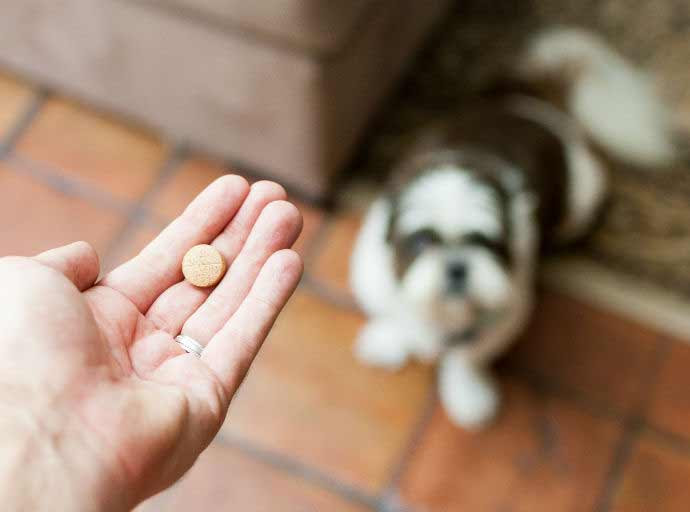
Paracetamol, aspirin and ibuprofen (also known by the brand Nurofen) can be highly toxic even at small doses leading to stomach ulceration, liver and kidney failure. This also includes our feline friends. Never give your animal any medication unless under the direction of a veterinarian.
We see and treat toxic reactions as a result of these human drugs being given to animals. We understand what it is like to have a pet in pain, and that you are usually only trying to help them. If you have given your pet any human medication, please don’t feel guilty about contacting us, we would rather know as soon as possible so we can begin treatment immediately.
If you suspect your pet has been given or has eaten any human medications by accident, contact us immediately even if they are not showing sings of toxicity. Left untreated, medications like ibuprofen can cause bleeding of the stomach due to ulceration and kidney failure.
Toxic reactions can vary and sometimes it can take as little as a few hours or a longer period of 4 -5 days for signs to appear. If you think your pet has ingested a toxic substance do not wait for the toxicity to develop. Contact a vet clinic immediately.
Toxic reaction signs we commonly see are:
- Vomiting and / or diarrhoea
- Weakness
- Lack of appetite
- Staggering
- Lethargy
- Dark Black or Tarry faeces
- Seizures
Treatment:
Depending on the medication and time since ingestion we may induce vomiting. Other common treatments include intravenous fluid therapy, stomach protectants and activated charcoal. However, therapy is dependant on the medication ingested and so it is very important to let us know which medications may have been consumed.
When calling the vet it is a good idea to have this information ready:
- exact toxin
- approximately how much was ingested
- how long ago you suspect your pet was poisoned
- approximate weight of pet
- also, what symptoms your pet is showing e.g. vomiting, diarrhoea, seizures.

References:
Petvet.co.nz https://petvet.
SPCA https://www.spca.nz/
NEW – Book my Vet Mobile App

Initial setup is easy – if you’re an existing client you will just require an email address to be loaded in our system and your client number to use as your password. The app allows you to save your details and even see all your pets reminders. You will only have to login once. How handy is that? Not an existing client? That’s ok! You can still quickly book as a guest account and we can then contact you with login details.
Please remember if you do have an emergency please contact us on (06) 7584006 as this app should only be used to book routine appointments like vaccinations, health checks etc.
Staff Showcase
Jo Foy – Vet nurse

Our Instagram Superstar
This cute Bull Terrier puppy came to visit us last month. Her name is Ava and she was just the sweetest little girl.
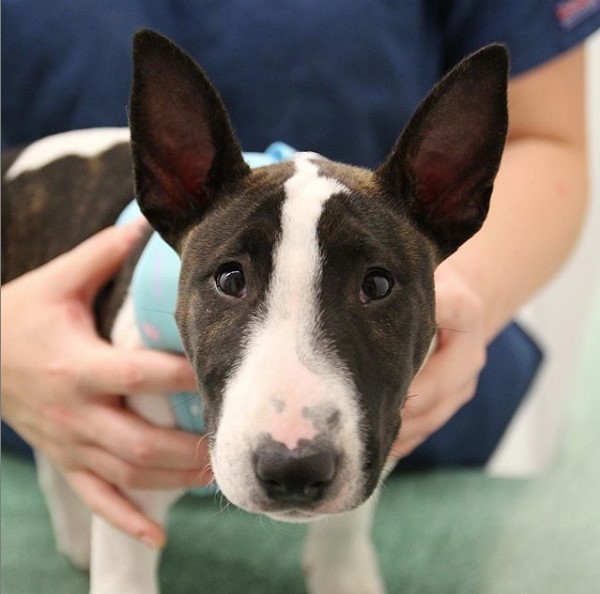
Disclaimer: This email contains comments of a general nature only and is not intended to be a substitute for professional veterinary advice.


